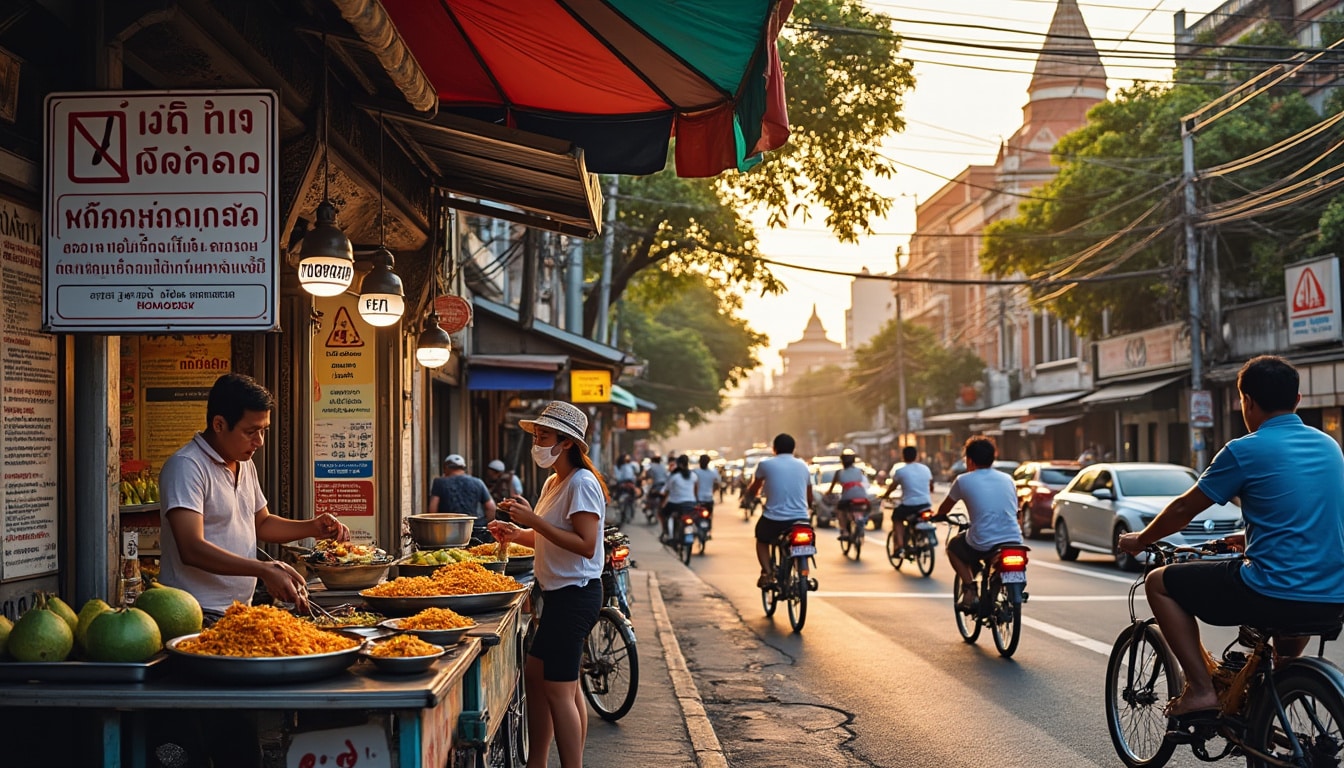Bangkok, a mesmerizing blend of tradition, innovation, and vibrancy, is not only renowned for its bustling street food scenes and magnificent temples but also for its intricate and unique legal landscape. As travelers and new residents flock to this cultural hub, understanding the city’s legal nuances is crucial to ensure a smooth and enjoyable experience. From the respect for the monarchy to strict drug laws, the real key to navigating Bangkok’s legal framework lies in being well-informed. Let’s dive into the legal maze of this dynamic city and illuminate the rules and laws that govern everyday life in Bangkok.
Drug Laws in Bangkok: What You Need to Know
When it comes to drug laws in Bangkok, the Thai government maintains stringent regulations that reflect the country’s hardline stance on illicit substances. While it may seem daunting, knowledge of these laws is essential for both residents and tourists and helps ensure compliance and avoid severe penalties.
The penalties for drug offenses in Thailand are among the harshest globally. For instance, trafficking drugs such as methamphetamines or cocaine can result in life imprisonment or even the death penalty. These strict laws aim at deterring drug use and maintaining order in society. For possession of smaller amounts, the consequences might range from hefty fines to significant jail time, depending on the substance in question.
In addition to the overarching Thai laws, individual cities can implement their specific regulations. In Bangkok, you’ll find heavy surveillance in public areas, especially tourist hotspots, to curb drug-related activities. It’s crucial to be mindful of your surroundings and avoid any engagements that could even indirectly involve drugs.
- 🔍 Don’t import or export any form of illegal drug.
- ⛔ Even possession of recreational drugs could lead to severe consequences.
- 👮 Always seek legal aid from Bangkok Legal Consultants or a Bangkok Law Firm if in trouble.
Avoiding wrongful accusations requires vigilance. If you find yourself in a predicament, contacting your embassy should be a priority. They can provide necessary support and guide you to the appropriate legal advisory in Bangkok.
Even with the harsh penalties, there have been initiatives within the legal framework to address addiction with a more therapeutic approach. Rehabilitation centers aiming at treating rather than punishing those with addiction issues have started to gain traction, reflecting a slight shift in societal attitudes towards drug-related offenses.
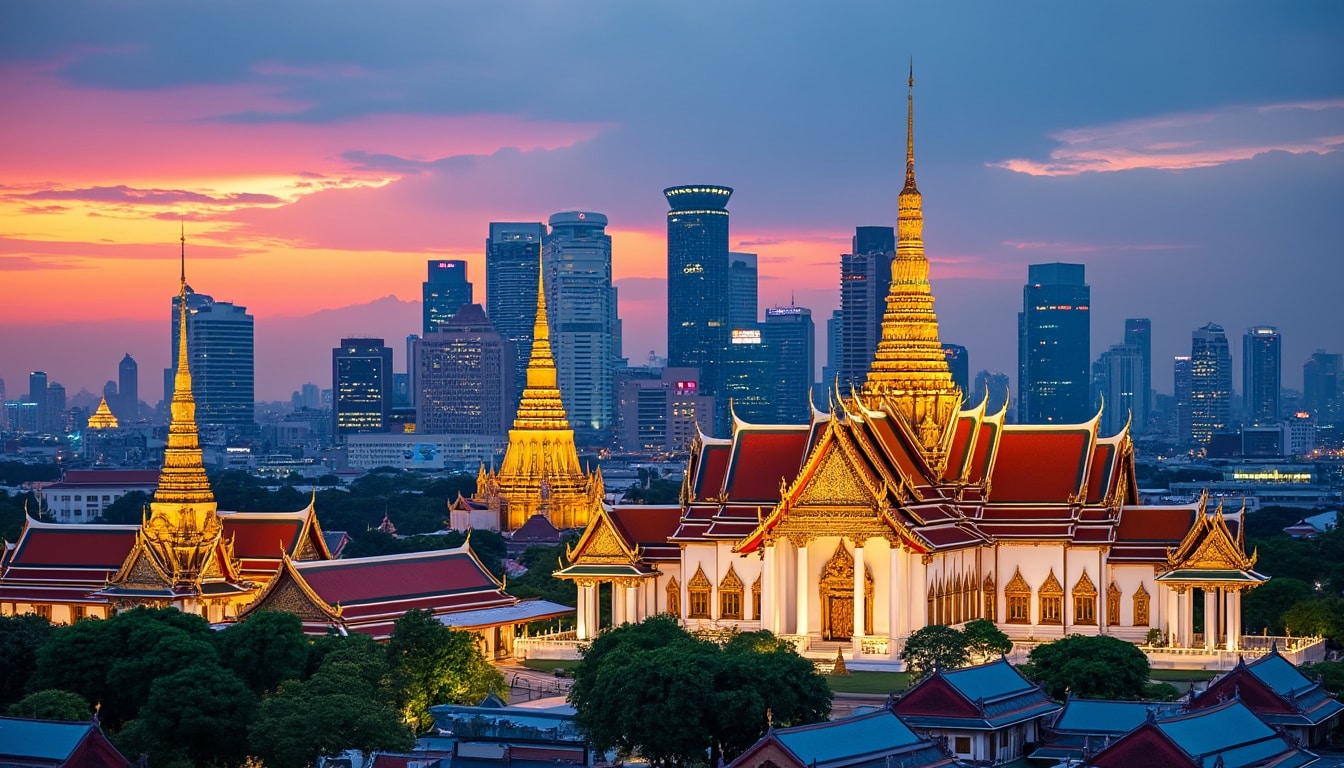
Insight into Thai Drug Laws and Their Impacts
For many travelers, understanding the gravity of drug laws in a foreign land may be the difference between a dream trip and potential disaster. Being unaware or careless can lead to interactions with law enforcement that are both frightening and costly. The Thai government enforces drug laws strictly, and ignorance is not an excuse. The best approach is prudence: avoid drugs entirely and associate only with trustworthy individuals who also respect Thai laws.
Thailand’s drug policy historically stems from efforts to maintain traditional societal values and counteract the threats posed by the global drug trade. Moreover, the impact of these stringent laws on tourists has been substantial, often resulting in a notable deterrent effect for those considering engaging in illegal activities while enjoying the cultural richness of Bangkok. Utilizing the resources of Legal Compliance Bangkok can ensure that both residents and visitors remain aware of their legal responsibilities and the potential consequences of violating drug laws in Bangkok.
Lèse Majesté: Respecting the Thai Monarchy
The reverence for the Thai monarchy, embodied in the country’s lèse majesté laws, is an essential part of Thailand’s legal framework. Understanding these laws helps foreign nationals adapt and respect the cultural standings that are profoundly venerated by locals.
Thailand’s lèse majesté laws make it illegal to defame, insult, or threaten the King, Queen, Heir-apparent, or Regent. Violations can result in severe penalties, including lengthy prison sentences. These laws extend to actions that might seem trivial to outsiders, such as stepping on money (thai baht) bearing the image of the royal family.
The rules are not only domestic but also apply internationally, meaning even discussions abroad or online can lead to legal consequences if deemed offensive by Thai standards. This global reach highlights the depth of respect and protection afforded to the monarchy by the Thai legal system.
- 🔒 Avoid expressing negative opinions about the monarchy in any form of media.
- 👑 Treat images of the monarchy, like those on currency, with the highest respect.
- 📜 Public events often commence with praise for the King, a tradition to observe respectfully.
Bangkok Legal Guides are incredible resources when navigating these laws, offering insights on ensuring interactions in the city are culturally sensitive and legally compliant. Indulging in local customs with respect not only avoids legal pitfalls but enriches your experience in the Kingdom.
The Cultural Significance of Lèse Majesté
Understanding the cultural and historical roots behind the lèse majesté laws offers a deeper appreciation of their presence in modern Thailand. The monarchy is seen as a unifying figure across the nation, its legacy intertwined with the country’s cultural identity. For centuries, the royal family’s influence has played a central role in shaping Thailand’s legal and social landscape.
In 2025, the monarchy remains deeply honored, with support woven into the legal fabric of the nation. The reverence for monarchy transcends political affiliations and generations, reflecting the stable and continuous respect granted by the populace. Maintaining this reverence ensures harmony and stability within Thai society, emphasizing the importance of these laws.
Understanding Legal Drinking Age and Regulations
One of the most misunderstood aspects of Thailand’s legal system by tourists is the regulation of alcohol consumption, which is distinctly different from many other countries. The legal drinking age in Bangkok, and throughout Thailand, is set at 20 years. This regulation forms part of broader societal efforts to maintain order and health standards among the youth.
Unlike in some Western nations where the drinking age starts at 18 or even younger, Thailand’s age restriction is strictly enforced. Bars, clubs, and retail outlets must verify the age of their patrons through identification checks. Failure to comply can lead to significant fines and legal issues for both the establishment and the individual.
| Age Limit | Regulation | Penalties |
|---|---|---|
| Under 20 | No purchase or consumption of alcohol | Fines and possible detention |
| Over 20 | Legal consumption | Must carry valid ID for verification |
This regulatory framework emphasizes the importance of making informed decisions when consuming alcohol. It acts as a measure to ensure public health and safety. As such, safe consumption involves sticking to licensed venues and being aware of personal limits and responsibilities.
Tourists should be particularly observant during national holidays and religious events, during which the sale of alcohol can be restricted or prohibited as part of national traditions and legal stipulations. The implementation of these laws reflects the values and customs central to Thai culture.
Practical Tips for Enjoying Bangkok’s Nightlife Legally
Exploring Bangkok’s vibrant nightlife can be one of the highlights of visiting the city, but staying within the bounds of the law ensures a safe and enjoyable experience. Here are some guidelines to help navigate Bangkok’s nightlife responsibly:
- 📜 Always carry your ID or a copy with you.
- 🎉 Enjoy festivities in licensed establishments.
- 🕒 Be mindful of closing times and alcohol bans during public holidays.
Using services from Bangkok Property Lawyers can also be advantageous for ex-pats or new residents planning to open bars or cafés, ensuring that they operate within legal parameters. Compliance with local laws not only protects businesses from legal challenges but enhances the reputation and reliability of services provided.
Driving and Transport Laws in Bangkok
Navigating the busy streets of Bangkok requires a solid understanding of local driving laws and regulations. Thailand’s transport rules are designed to manage one of the most complex traffic systems in the world, integrating a massive influx of vehicles and the cultural mix of road users.
Among the most basic yet violated rules is the requirement for seat belts, which applies to drivers and all passengers. Fines are imposed for breaches to ensure passenger safety. Equally, the use of mobile phones while driving is illegal unless a hands-free device is used, preventing distracted driving.
An interesting aspect of the law is the prohibition of driving without a shirt, aligning with broader public decency laws. This rule adds to Thailand’s unique character, highlighting its efforts to maintain cultural norms and safety on the roads.
- 🚗 Always wear seat belts.
- 📵 Avoid mobile phones unless hands-free.
- 👕 Don’t drive without a shirt; it breaches public decency laws.
Moreover, the International Driving Permit (IDP) is necessary for most foreigners wishing to drive in Bangkok legally. Renewing this permit is essential, as road checks are common, particularly at checkpoints and during holidays.
Traffic Enforcement and Penalties
The approach to traffic enforcement in Bangkok involves routine checks and a network of surveillance to ensure compliance with local laws. Non-compliance, such as driving under the influence or reckless driving, can lead to severe penalties, including fines and license suspension.
The implementation of these laws is supported by an increasing number of traffic cameras and a traffic police presence, both of which are aimed at preventing accidents and ensuring that the roads remain safe for all users. For serious violations, having access to a Bangkok Corporate Lawyer may be essential to address potential legal challenges effectively.
Understanding and adhering to these rules not only helps in avoiding fines but also contributes to a safer and more organized traffic system in the city. Knowledge and compliance are key to making one’s driving experience in Bangkok both enjoyable and lawful.
Lesser-Known Legal Tips for Tourists
There are several quirky yet essential laws in Bangkok that can catch an unaware traveler off guard. While these laws might seem unusual, they are integral to maintaining the social and cultural fabric of Thai society.
For instance, wearing underwear is a legal requirement when in public. Failure to comply can potentially lead to fines, emphasizing the cultural emphasis on modesty. Similarly, it’s illegal to remove Buddha images or statues from the country without proper permits. Ignoring this could result in heavy penalties as these items are considered sacred cultural artifacts.
| Unusual Laws | Description | Penalty |
|---|---|---|
| No Underwear in Public | A requirement for public decency | Potential fines |
| Removing Buddha Images | Requires permission for export | Heavy penalties |
- 🚮 Dispose of chewing gum properly to avoid fines.
- 🏯 Act respectfully in religious sites.
- 📜 Carry a copy of your passport for identification.
For travelers seeking comprehensive advice, the services of Legal Aid Bangkok or resources from the Thai Law Association can be invaluable in clarifying any legal ambiguities.
Eccentric Legal Facts
Thailand’s legal landscape includes laws that might seem odd to foreign nationals but are reflective of historical practices or cultural norms. For instance, the need for modest apparel reflects deeply-held beliefs regarding public decency. Similarly, keeping noise levels down respects the communal living ethos that is predominant in Thai society.
By understanding these laws, tourists and newcomers can better acclimate to life in Bangkok, ensuring polite interactions and a respectful understanding of Thai customs. These insights not only help in adhering to local laws but enrich the travel experience, fostering a deeper connection to the community and culture of Bangkok.
By ensuring compliance and showing respect, visitors can enjoy all the wonders of Bangkok with confidence, knowing they are contributing positively to the local community.
Legal FAQs for Tourists in Bangkok
- What should I do if accused of a drug offense? Contact your embassy immediately and seek assistance from a reputable legal firm like Bangkok Legal Guides.
- How can I legally consume alcohol in Bangkok? Ensure you are over 20 and purchase from licensed establishments, always carrying identification.
- Is it necessary to carry my ID at all times? Yes, make sure you have either your passport or a legalized copy when out, especially when entering nightlife establishments.
- What are the consequences of violating lèse majesté laws? Penalties are severe, ranging from fines to lengthy imprisonment; utmost respect for the monarchy is essential.
- How can I drive legally in Bangkok? Obtain an IDP, follow all local traffic laws, and consider consulting with Bangkok Corporate Lawyers for specific legal advice.
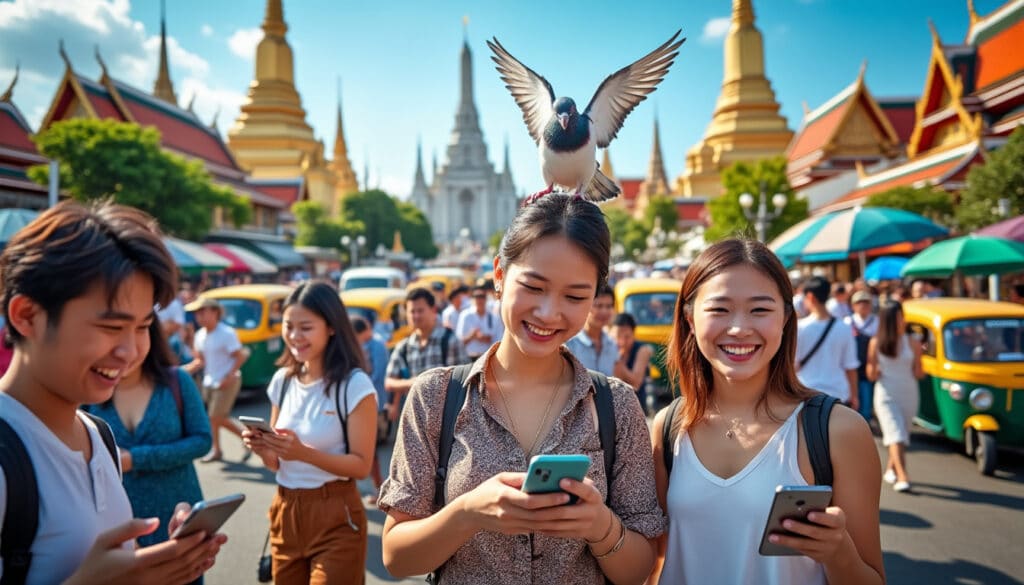
Calling and communication rules in Bangkok
In the bustling metropolis of Bangkok, where cultures merge and the old harmonizes with the new, understanding the nuances of communication can vastly enhance your experience, whether you’re a visitor or a resident. From navigating phone codes to mastering the…
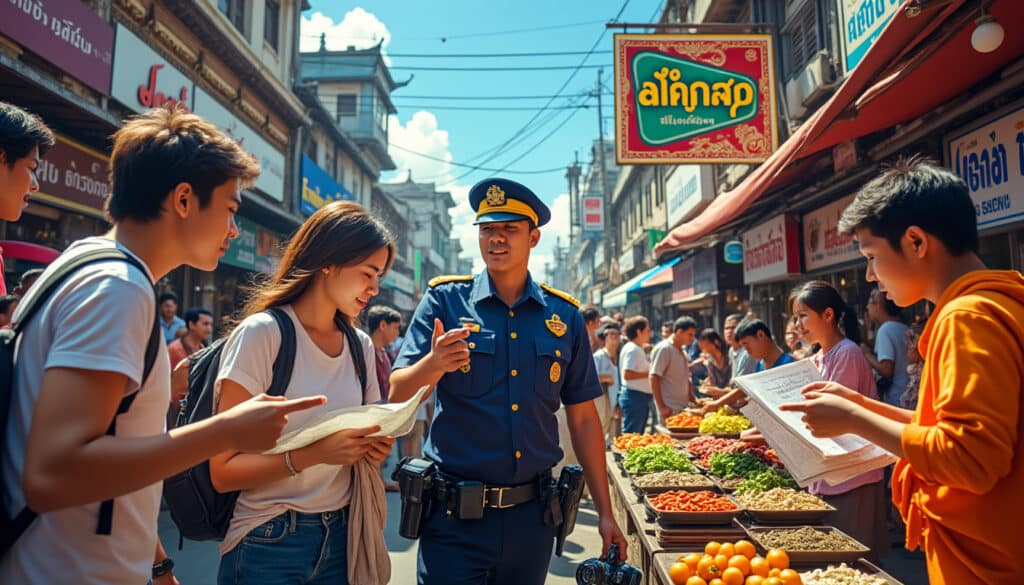
Criminal status and entry to Bangkok
Considering a trip to Thailand can be an exciting venture for many travelers but poses a unique set of challenges for those with a criminal record. Known for its vibrant culture, delicious cuisine, and picturesque landscapes, Thailand is a hotspot…
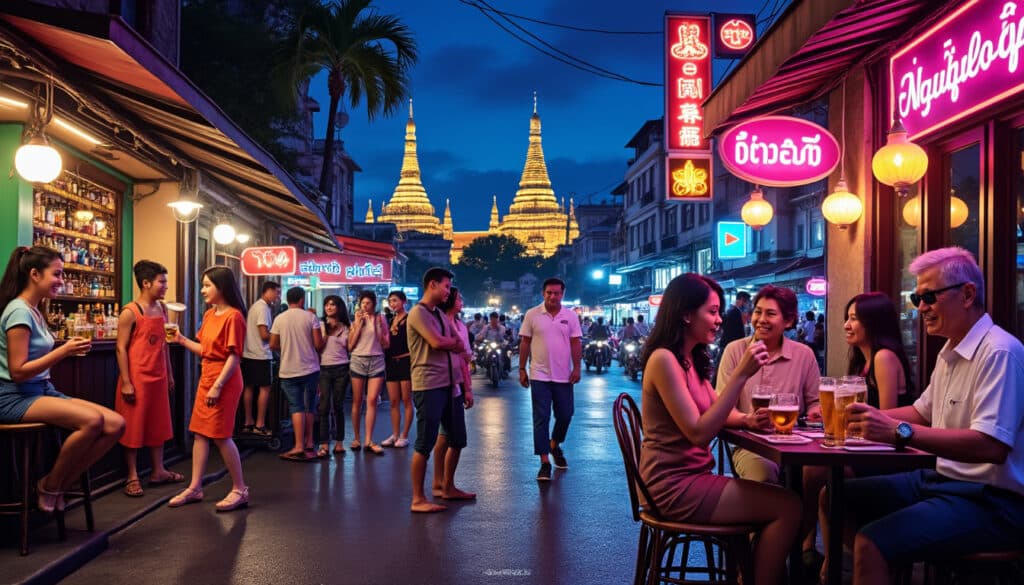
Drinking and age restrictions in Bangkok
When you think of Bangkok, images of bustling night markets, lively street vendors, and world-renowned nightlife may come to mind. However, behind the neon lights and festive atmosphere, there are important legal frameworks that govern alcohol consumption in this vibrant…
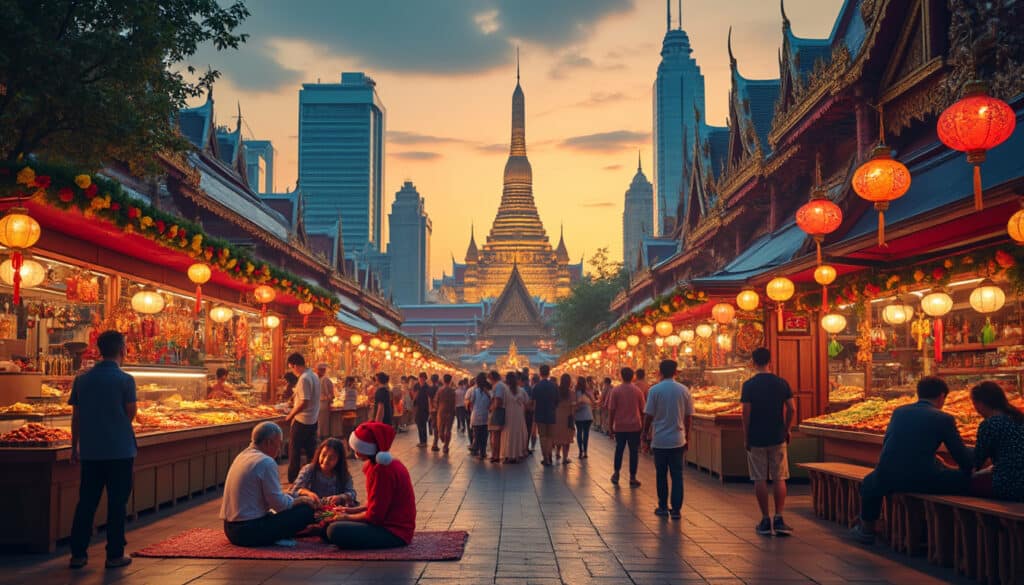
Join us in exploring the enchanting tapestry of holiday openings in Bangkok, where vibrant festivals and public holidays paint a unique picture of this bustling metropolis. As a city that never sleeps, Bangkok balances its rich cultural traditions with modern…
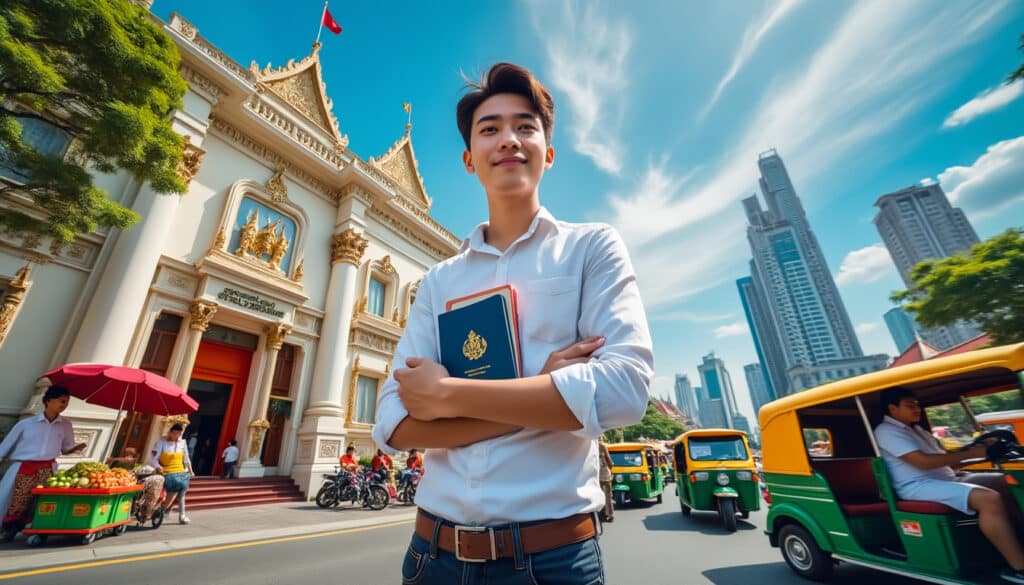
How to move to Bangkok legally
Bangkok, known as the “Big Mango” and the “City of Angels,” is a city that attracts expats from around the globe. Its bustling streets, rich cultural tapestry, and tantalizing cuisine make it an irresistible destination for those seeking new adventures.…

Smoking, drugs, and red light laws in Bangkok
In recent years, Bangkok has captivated the world with its seamless blend of modernity and tradition. Yet, amidst the vibrant culture and dynamic nightlife, there’s a complex tapestry of laws governing smoking, drug use, and the infamous red-light districts. With…

Social and discrimination issues in Bangkok
Bangkok, the vibrant capital of Thailand, is a city known for its bustling streets, stunning temples, and rich cultural tapestry. However, beneath this vibrant exterior lie complex social and discrimination issues that affect various groups within the city. From gender…

